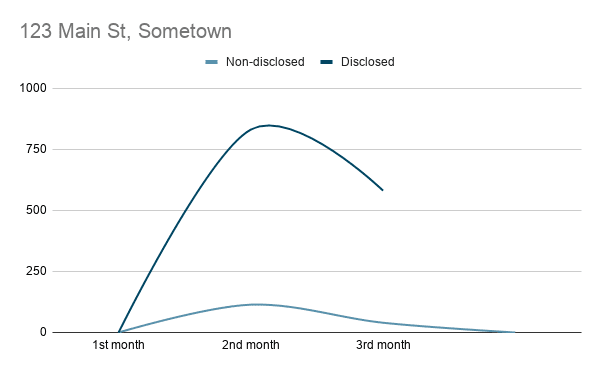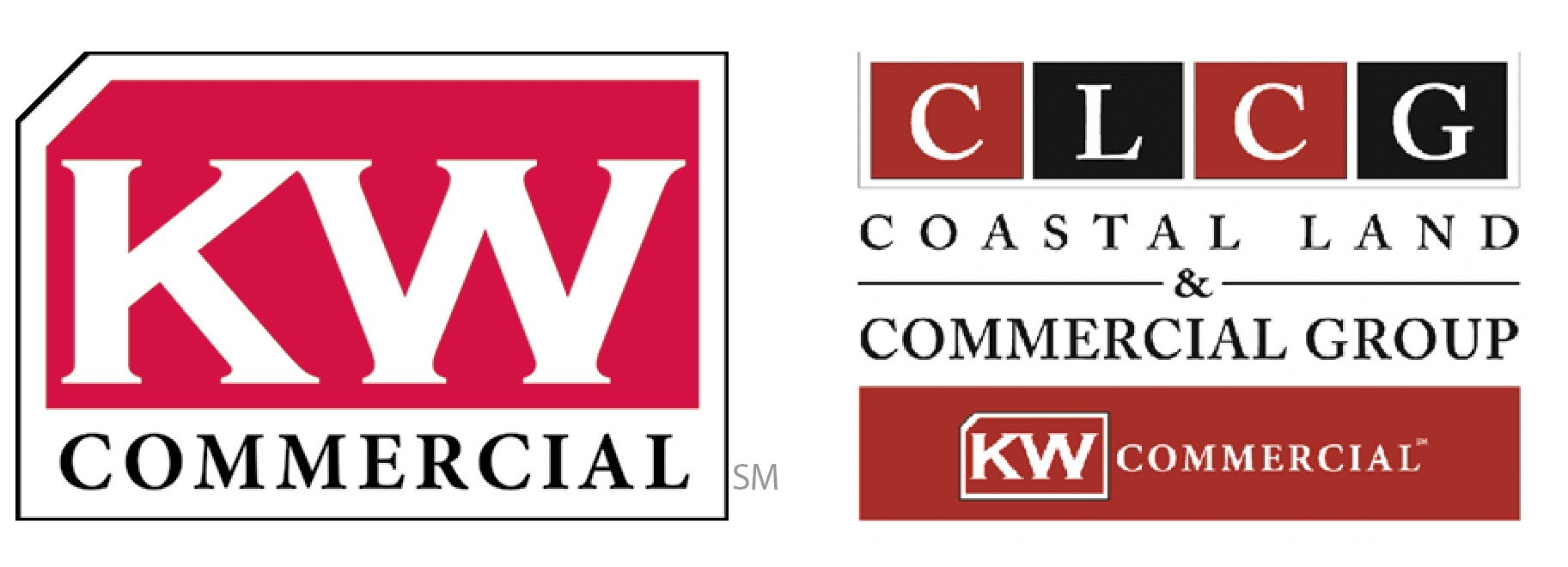Disclose or Not to Disclose
In commercial real estate, sometimes sellers are hesitant to share their property’s location when creating public marketing. This can happen because they own a business and don’t want to cause concern to clients or decrease sales or, if they own a multifamily property, they don’t want to alarm tenants. The case study below is an example of how hiding your property’s location can be detrimental to the ultimate goal of selling. We are sure that by disclosing an address, it will increase the effectiveness of an advertising campaign, and help to avoid the most common mistake of making it difficult for buyers to find a listing.
.
123 Main St, Sometown
A property was advertised at first with an undisclosed address – we’ll call it 123 Main St, Sometown. It was listed originally back in July 2019 for 6 months with only the county named. 123 Main St, Sometown received 114 total views and no offers before being withdrawn.
In Nov 2020, almost a year after it was withdrawn, the seller decided to come back to the market. This time the address was disclosed and the difference of how many people had interest was amazing. Within the first month it received 831 views, multiple offers and went under the agreement. It closed shortly thereafter.
The chart below shows the difference in the amount of unique visitors between the non-disclosed and disclosed listing from the two major platforms we use. The traffic increase of 1,350% between them is stunning.

Disclose or not disclose – is it still a question? In residential real estate, they say the three most important things are “Location, Location, Location”, and it seems that is the case for commercial real estate as well. It’s important to weigh what’s most important; keeping clients and tenants happy or selling quickly at the best price.
So if it is so much more effective to list the address, why would anyone still choose not do so?
There are several reasons, in addition to those list above, that an owner may still want to keep the location of the property hidden from the public.
- Disclosing that the property is for sale could affect customer or employee relationships. If the property is being sold and someone may be out of a job or their business relationship may end with a new owner, it may make sense to accept the decreased lead traffic in order not to rock that boat.
- If tenants are month-to-month and learn about a property being on the market, it can cause the renters to leave and thereby decrease the sale price.
- Outside influences can make a property unmarketable. For example, sometimes a development site has neighbors that do not support seeing it changed or a residential community will organize in order fight the sale to a specific owner.
One of the main reasons many commercial deals do not get marketed is because of the potential backlash. This backlash is one of the main reasons is why consumers will not get a “Zillow” or “Redfin” for commercial real estate – because commercial property owners’ rights are not as specified as homeowner rights and can lead to outside influences stopping the sale or improvements.
By: Viktoria Alkova, Junior Associate & Ethan Ash, Associate Broker
